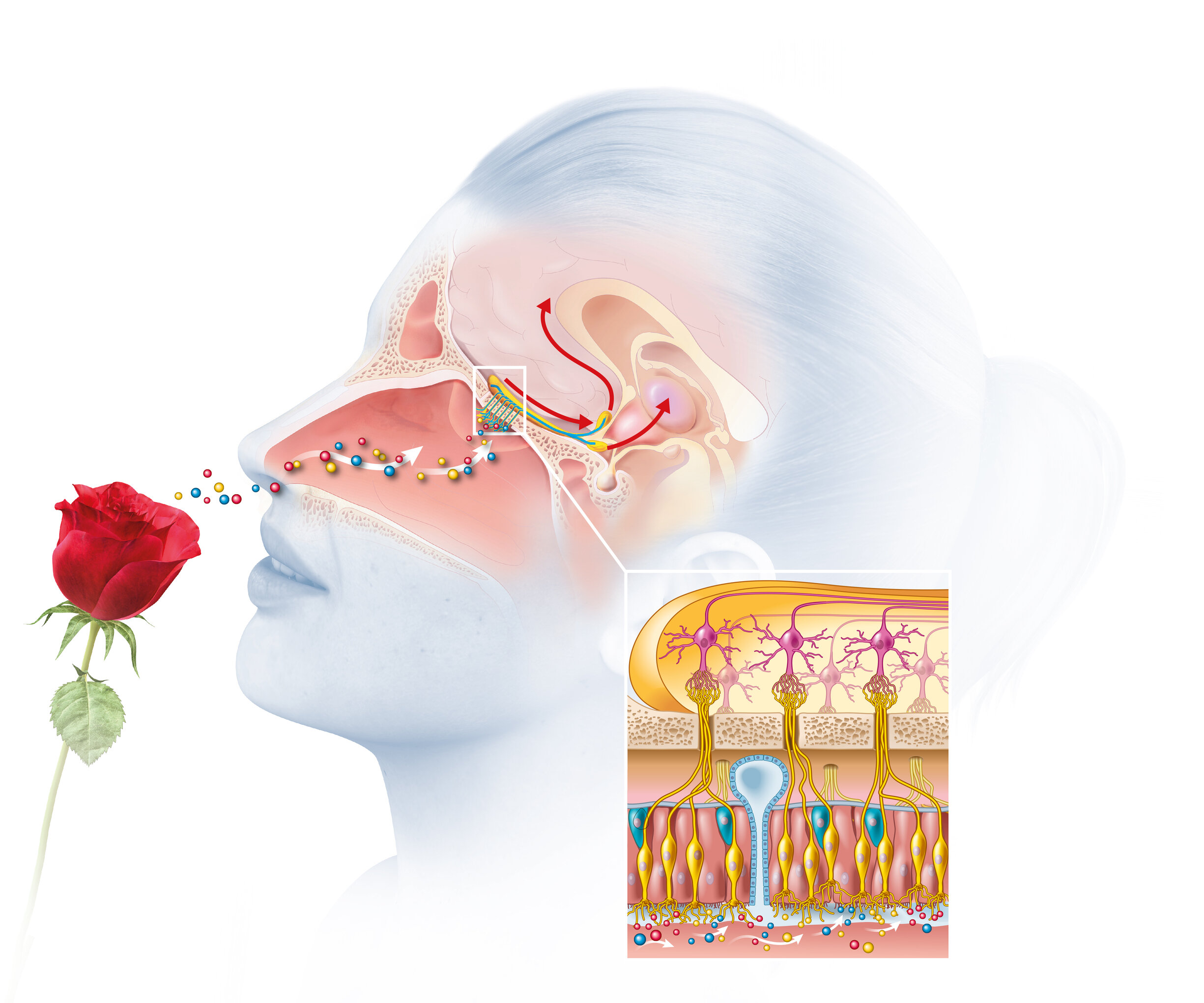Imagine for a moment—you take the first sip of your morning coffee, and instead of enjoying that familiar, delicious aroma, you’re met with the smell, then taste, of gasoline. Or you bite into a juicy piece of steak and it tastes like dirt. Or you lean into a rose in full bloom, anticipating its beautiful fragrance, but no scent rises to meet you. These are the experiences befalling hundreds of thousands of people world-wide as a result of having gotten COVID-19.
According to the Centers for Disease Control and Prevention (CDC), nearly half of COVID-19 patients experience changes to their sense of taste and smell that can linger through and post-recovery even months later.
But it’s the loss of smell that’s often a worse culprit, since we lose our ability to taste when we can’t smell.
What’s Going on Here?
Known scientifically as anosmia, a diminished or loss of sense of smell has emerged as one of the primary symptoms of COVID-19. It’s often the first―and sometimes the only―symptom for some patients. And as if a complete loss of smell isn’t bad enough, some of those afflicted are tormented by extremely unpleasant phantom odors, such as the smell of burning plastic, ammonia, or even feces.
Evidence suggests that the COVID virus may be binding to the proteins of cells that surround the olfactory neurons—the nerve cells in our noses. And when the virus attacks these cells, the neurons stop working. While these neurons can regenerate and reestablish their functioning following a COVID infection, how long the process takes varies significantly from person to person.
Beyond vision and hearing, our sense of smell profoundly impacts the way we perceive our environment and our sense of place. It plays an important role in our emotional well-being, as scents are known to evoke memories and emotions. Who doesn’t experience fond memories from the scent of chocolate chip cookies baking in the oven? Or burning leaves? Or a loved one’s cologne?
Changes Can Be Greater Than You Might Imagine
According to Sandeep Robert Datta, MD, PhD, associate professor of neurobiology at Harvard Medical School, when you lose your sense of smell, your sense of well-being declines. This can have a profound impact on your quality of life, with studies revealing:
Increased social isolation
Inability to feel pleasure
A strange sense of detachment
Increased anxiety
Depression
People who have lost their sense of smell report losing their pleasure in socializing. They say that losing their sense of smell weakened their connections with others, and that they not only often feel isolated and lonely, but even detached from reality and alienated from themselves. They feel distanced from the human experience—as if looking in a mirror and seeing no reflection. Some have gone so far as to say they feel as if they don’t even exist, because they can’t smell their own environments—their homes and grass, the air and rain.
They also report feeling less safe, as smells serve as a sort of primal alarm system for dangers in the environment, from fires to storms to gas leaks to food burning on the stove.
Help is Available
While there have not yet been any bona fide cures unearthed for anosmia, some approaches, including smelling essential oils for periods of time over the course of weeks or taking fish oil, have been known to lessen the severity of the loss.
For anyone in need of intervention or support, here are a few options to pursue:
Go on anosmiafoundation.com, the website of a nonprofit that supports anosmia sufferers, expands the availability and accessibility of treatments, educates the public, and more.
Join a Facebook group hosted by abscent.org, a UK-based nonprofit that helps people with smell-loss disorders.
For those of us who have retained our sense of smell, let’s remember to be grateful for an often overlooked sense, one that is so important to our sense of self, well-being, and ability to experience pleasure.

